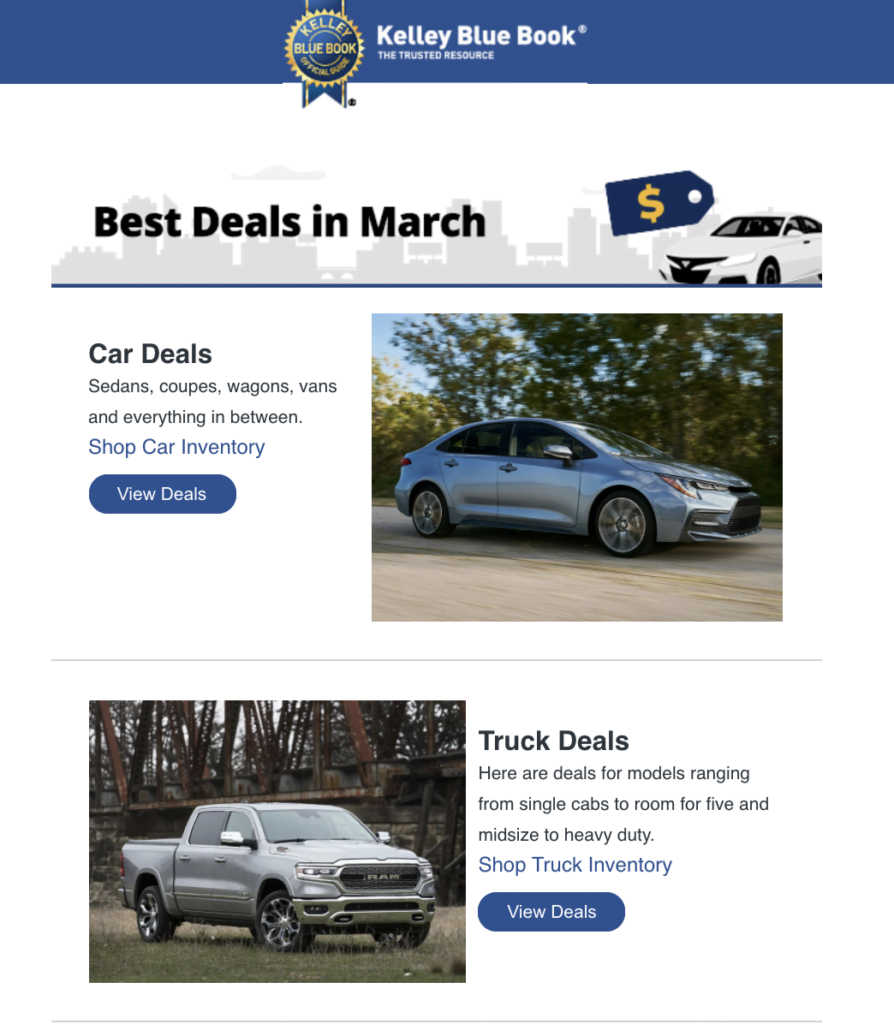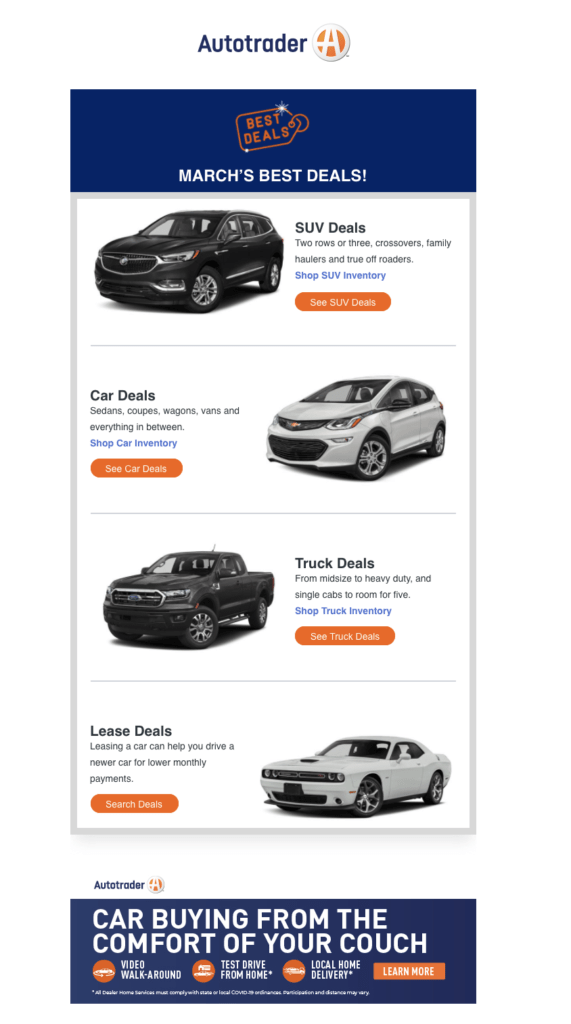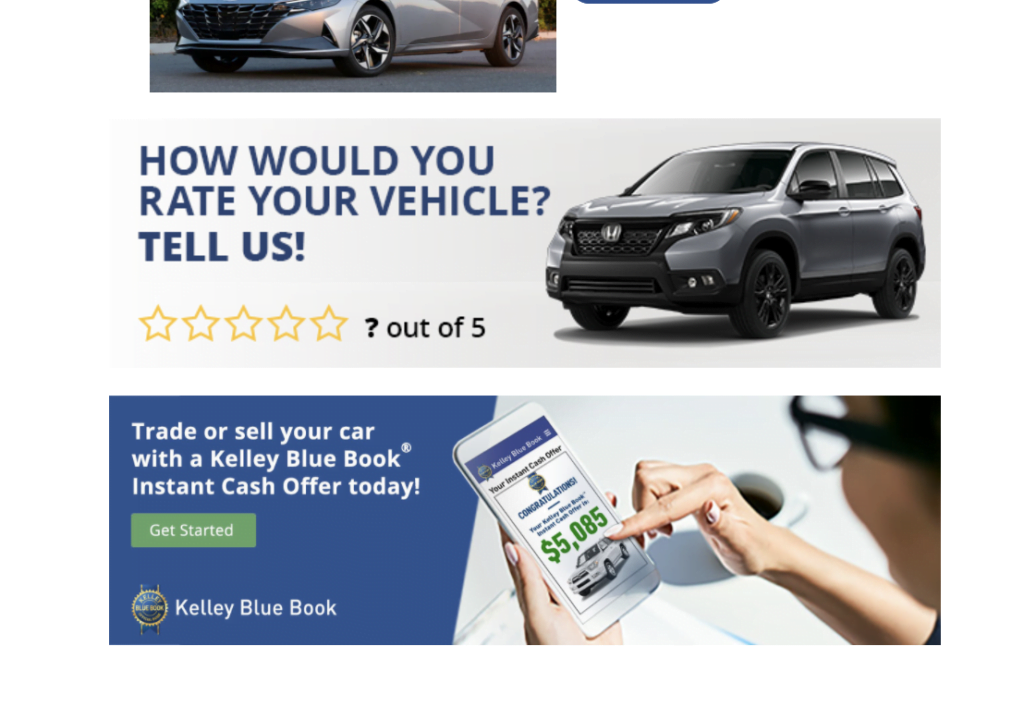 In the fictional work “Aeneid” by Virgil, the Greeks build a giant wooden horse and hide a few dozen warriors inside, placing it outside the besieged city of Troy. The Trojans wheel the horse inside, and under the cover of night, the Greeks open the gates to let their army in, defeating the Trojans.
In the fictional work “Aeneid” by Virgil, the Greeks build a giant wooden horse and hide a few dozen warriors inside, placing it outside the besieged city of Troy. The Trojans wheel the horse inside, and under the cover of night, the Greeks open the gates to let their army in, defeating the Trojans.
Unfortunately, there’s a modern-day equivalent in the automotive industry. The company with the largest market share of trade-in tools on dealer’s websites, Kelley Blue Book, does this on a daily basis.
On a warm Spring day in early March, I received two emails within one hour of each other.
The first email was from Kelley Blue Book, owned by Cox Automotive. The email promoted “The Best Vehicle Deals for March”, and encouraged me to trade in my car with an instant cash offer.
The second email was from AutoTrader (also owned by Cox Automotive), again promoting best deals across trucks, sedans, and online shopping for cars from their site.

The catch: I never explicitly signed up to receive emails from KBB nor AutoTrader. What I did, though, is use Kelley Blue Book on a local dealer’s websites to value my trade-in.
At first glance, this seems like a “So what?” moment, but go one step further and you’ll see why this “trojan horse” tactic presents a big problem for local car dealers.
The rub: I submitted my contact information on a local dealer’s website trade-in tool, establishing a personal connection with them and their brand, not KBB. KBB and AutoTrader now reach out to me, directly competing with my local dealer for site traffic and trade-in leads.
Buried in the legalese of KBB and AutoTrader’s agreements is language that gives them the right to take my information from the form on the dealer’s website and start marketing to me directly.
This direct marketing competes with my local dealer, driving traffic to KBB and AutoTrader, not back to the local dealer. And should I submit a lead through their big brand websites, they’ll re-sell my information back to the original dealer that I started with, and also that dealer’s competitors.
If you owned a local hardware store and Home Depot was not only selling their products inside your store, but then driving customers to Home Depot across the street, you’d be livid!
Dealers! If you’re using Kelley Blue Book for your trade-in leads, have you been able to successfully address this conflict of interest with them?

If yes, well done. If not, let us show you how we build your brand, not ours, and the many other reasons we’ve got better website conversion trade-in tools and merchandising solutions.
The next time you get an offer for a “free” or reduced price tool that’s included in the bigger ad packages, cast a critical eye to the details. They’re not so free when they’re competing directly against your own marketing efforts.